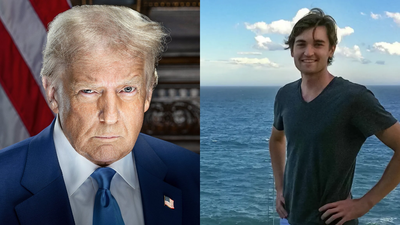In a move that has sparked heated debates across the nation, former President Donald Trump granted a full pardon to Ross Ulbricht, the convicted founder of the infamous Silk Road website, on January 21, 2025. Ulbricht, who had been serving a life sentence without the possibility of parole, was at the center of one of the most high-profile cases involving the dark web. The pardon marks a dramatic turn of events for a man who was seen by some as a visionary innovator and by others as a criminal mastermind.
What Was the Silk Road?
The Silk Road was an online marketplace launched in 2011 by Ross Ulbricht, operating under the pseudonym “Dread Pirate Roberts.” It was hosted on the dark web, a part of the internet that is not indexed by traditional search engines and requires special software like Tor to access. The site allowed users to buy and sell goods anonymously, using Bitcoin as the primary currency.
While it included some legal items, the Silk Road became infamous for facilitating illegal transactions, particularly the sale of drugs, counterfeit documents, and hacking tools. By the time it was shut down by the FBI in 2013, the website had processed millions of dollars in transactions.
Why Was Ulbricht Arrested?
Ross Ulbricht was arrested in October 2013 at a San Francisco library, where he was caught red-handed while logged into the Silk Road as an administrator. The charges against him included drug trafficking, money laundering, and computer hacking. Federal prosecutors argued that Ulbricht had created a platform that enabled large-scale illegal activity and that he personally profited from the criminal enterprise.
During his trial in 2015, the prosecution painted Ulbricht as a calculating entrepreneur who knew exactly what his platform was being used for. He was ultimately convicted on all counts and sentenced to two life terms plus 40 years without the possibility of parole.
Ulbricht’s case became a lightning rod for debates about the limits of digital privacy, the role of law enforcement in policing the internet, and the ethics of harsh sentencing. Critics argued that Ulbricht’s punishment was excessively harsh, particularly since many of the vendors and buyers on the Silk Road received significantly lighter sentences.
The Road to a Pardon
Ross Ulbricht’s family and supporters launched a public campaign to seek clemency for him, arguing that his sentence was disproportionate to his crimes. They emphasized that Ulbricht had no prior criminal record and that he was a nonviolent offender. High-profile figures, including Libertarian politicians and criminal justice reform advocates, joined the call for his release.
During his 2024 presidential campaign, Donald Trump promised to pardon Ulbricht, citing concerns about the fairness of his sentencing. Many viewed this promise as an appeal to the Libertarian-leaning segment of his voter base, which has long criticized government overreach and the criminal justice system.
On January 21, 2025, Trump fulfilled that promise by granting Ulbricht a “full and unconditional” pardon. The decision effectively erased Ulbricht’s life sentence and allowed him to walk free after more than a decade in prison.
Why Is the Pardon Controversial?
Trump’s decision has drawn sharp criticism from law enforcement officials, legal experts, and some members of the public who see it as undermining the seriousness of Ulbricht’s crimes. They argue that the Silk Road facilitated the distribution of dangerous drugs, including heroin and fentanyl, which have contributed to the opioid epidemic. The FBI and Department of Justice have both issued statements expressing concern over the message this pardon sends about accountability for online crimes.
On the other hand, Ulbricht’s supporters argue that his punishment was an example of judicial overreach. They claim that the justice system made an example out of him while ignoring the broader systemic issues that drive online criminal activity. They also point out that many of the claims made during his trial—such as allegations of hiring hitmen to silence witnesses—were never substantiated in court.
What Happens Next?
Ross Ulbricht’s release raises questions about his future and the broader implications for internet governance. Ulbricht, now in his early 40s, has spent the last few years writing and advocating for prison reform. In statements released through his family, he has expressed remorse for the harm caused by the Silk Road and has pledged to focus on positive contributions to society.
For the broader public, the pardon reignites debates about how to regulate the internet and the role of platforms in facilitating illegal activity. The dark web remains a hub for illicit trade, and shutting down one marketplace often leads to the emergence of others.
Public Reactions
The pardon has polarized public opinion. On social media, some users celebrated Ulbricht’s release, calling him a victim of an unjust system. Others condemned the decision, accusing Trump of pandering to special interest groups at the expense of justice.
Legal scholars note that the case highlights the complexities of sentencing in the digital age. Should platform creators be held accountable for how their sites are used? How do we balance innovation with regulation? These are questions that will likely shape the future of internet law.




